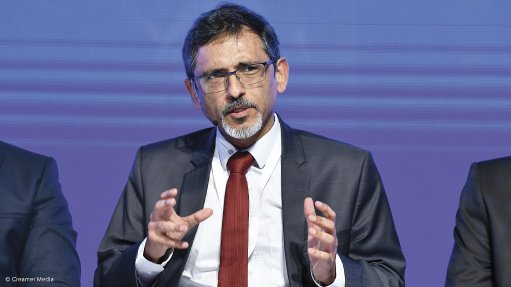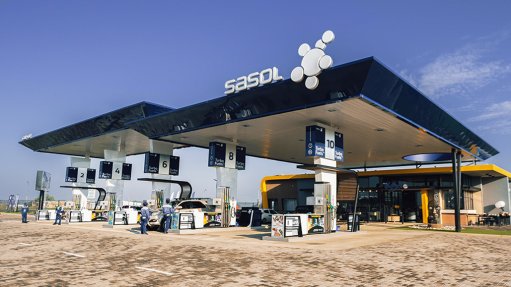Eskom, W Cape govt welcome amendments giving effect to 100 MW reform
The Department of Mineral Resources and Energy’s (DMRE’s) August 12 Gazetting of its amendment to Section 2 of the Electricity Regulation Act has been welcomed by State-owned power utility Eskom and the Western Cape provincial government.
The amendment permits private electricity generators to operate plants of up to 100 MW without a licence from the National Energy Regulator of South Africa, which Eskom, in a statement, says is a progressive step that will, over time, greatly assist in the effort to provide reliable and sufficient electricity for the economy.
In addition, the utility says the amended regulations will provide it space to conduct much-needed repairs on its infrastructure.
In this regard, Eskom points out that it continues to implement a reliability maintenance recovery programme to achieve operational sustainability and that this programme results in many electricity generating units being taken offline for planned maintenance, thereby leaving the national power system constrained.
“Therefore, customer-funded capacity alongside the contribution by independent power producers will greatly assist in addressing the immediate supply/demand gap and reduce the risk of load-shedding over time,” Eskom states.
MUNICIPAL INCLUSION?
Western Cape Finance and Economic Opportunities Minister David Maynier says in a separate statement that the amendments are a positive move towards a more open, diverse and competitive energy sector and will give much-needed certainty to investors.
He adds that it will also facilitate quicker uptake and access to affordable renewable energy to meet the current energy shortfall in South Africa.
However, Maynier says the amendments do not go far enough to urgently address the energy and climate crisis facing South Africa, pointing to recent statistics from the Council for Scientific and Industrial Research which show that, by mid-June, the load-shedding figures (1 268 GWh) had almost reached the same amount of load-shedding that was experienced for the entire 2019 (1 352 GWh).
“Large-scale private sector participation in energy generation, in partnership with government, will be key to addressing the current shortfall in the Western Cape,” he suggests.
Therefore, Maynier urges Mineral Resources and Energy Minister Gwede Mantashe to provide further clarity on the potential role of municipalities, as a reseller of wheeled private sector power.
He questions whether municipalities will be able to buy energy from an independent power producer and then sell it on to their customers, or whether municipalities are limited to buying energy only for their own consumption.
“We also urge [Mantashe] to ensure the registration process is streamlined, as this risks becoming a complex spiderweb of red tape that could undermine the implementation of renewable energy projects and lose the opportunity provided through the licensing-exemption threshold increase,” says Maynier.
Clarity in this respect is critical to the success of the Western Cape’s Municipal Energy Resilience (MER) initiative, which seeks to support municipalities to implement renewable energy projects in municipalities across the province.
This would empower municipalities, businesses and households to generate, procure and sell electricity.
“By contributing to an increasingly decentralised system of low-carbon energy generation and distribution that will help to mitigate the risk of load-shedding in South Africa, the MER initiative will help to boost business confidence and contribute to economic growth and job creation in the Western Cape,” he says.
Maynier adds that the MER initiative will contribute to the fight against climate change, which he says is more important than ever, given the recent findings and recommendations of the Intergovernmental Panel on Climate Change’s sixth assessment report, which was released earlier in August.
Further, Maynier states that the South African renewable energy sector has the potential to attract much-needed investment of the type which creates jobs.
Comments
Press Office
Announcements
What's On
Subscribe to improve your user experience...
Option 1 (equivalent of R125 a month):
Receive a weekly copy of Creamer Media's Engineering News & Mining Weekly magazine
(print copy for those in South Africa and e-magazine for those outside of South Africa)
Receive daily email newsletters
Access to full search results
Access archive of magazine back copies
Access to Projects in Progress
Access to ONE Research Report of your choice in PDF format
Option 2 (equivalent of R375 a month):
All benefits from Option 1
PLUS
Access to Creamer Media's Research Channel Africa for ALL Research Reports, in PDF format, on various industrial and mining sectors
including Electricity; Water; Energy Transition; Hydrogen; Roads, Rail and Ports; Coal; Gold; Platinum; Battery Metals; etc.
Already a subscriber?
Forgotten your password?
Receive weekly copy of Creamer Media's Engineering News & Mining Weekly magazine (print copy for those in South Africa and e-magazine for those outside of South Africa)
➕
Recieve daily email newsletters
➕
Access to full search results
➕
Access archive of magazine back copies
➕
Access to Projects in Progress
➕
Access to ONE Research Report of your choice in PDF format
RESEARCH CHANNEL AFRICA
R4500 (equivalent of R375 a month)
SUBSCRIBEAll benefits from Option 1
➕
Access to Creamer Media's Research Channel Africa for ALL Research Reports on various industrial and mining sectors, in PDF format, including on:
Electricity
➕
Water
➕
Energy Transition
➕
Hydrogen
➕
Roads, Rail and Ports
➕
Coal
➕
Gold
➕
Platinum
➕
Battery Metals
➕
etc.
Receive all benefits from Option 1 or Option 2 delivered to numerous people at your company
➕
Multiple User names and Passwords for simultaneous log-ins
➕
Intranet integration access to all in your organisation


















